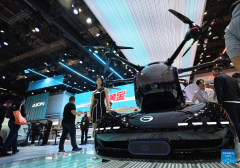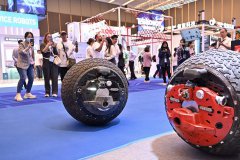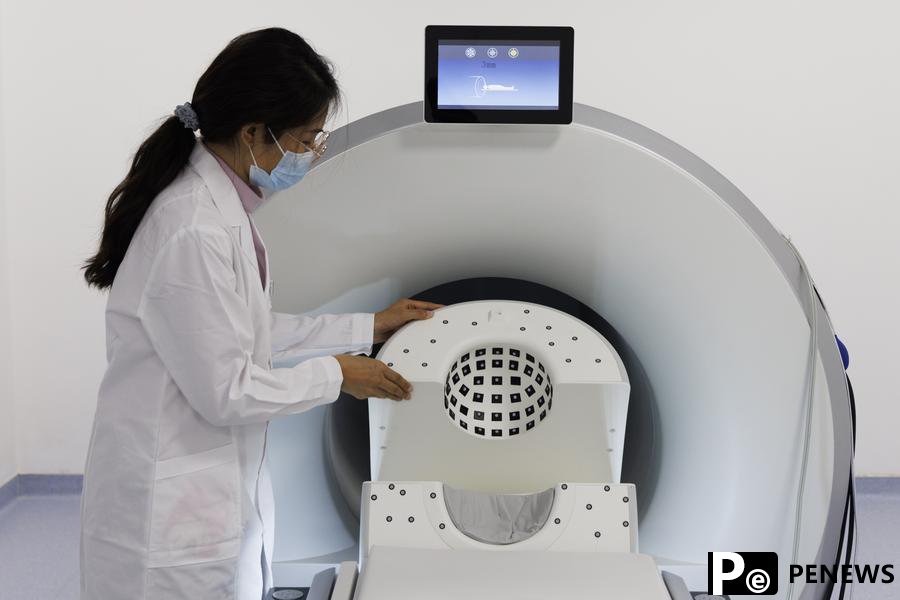Home>>
Stricter controls imposed on marketing of smart driving carsBy Li Fusheng (China Daily) 08:19, April 29, 2025
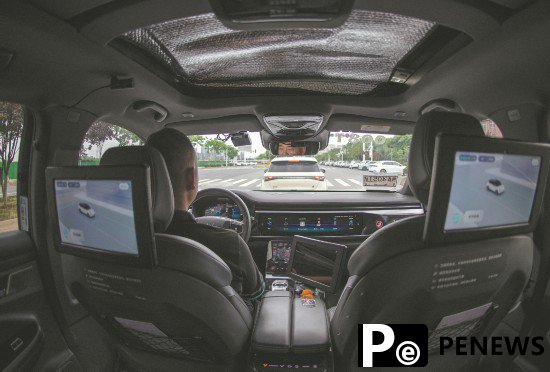
An intelligent connected vehicle tester monitors the status of the car during a road test in Wuhan, Hubei province, in July. (Photo/Xinhua)
"They are nothing but lies," said Wang Yun, a 35-year-old teacher at a middle school in Tianjin, about many carmakers' marketing campaigns to promote smart driving vehicles.
Once an avid fan of the electric Xiaomi SU7, Wang's enthusiasm for such vehicles waned after a fatal crash in East China's Anhui province in March involving the model.
Three young people were in the vehicle, cruising on a highway late at night at 116 kilometers per hour with its smart driving system Xiaomi Pilot on, when the car suddenly prompted the driver to "take over" after it detected an obstacle.
Data from Xiaomi shows the driver immediately took control of the vehicle. However, it ended up crashing into a concrete barrier at 97 km/h and bursting into flames, killing all three occupants of the car.
The popularity among young people of Xiaomi and its founder Lei Jun sparked widespread discussion about the safety of the vehicle's smart driving system and its technology.
The tragedy also prompted Wang to question whether the technology was perfect, as many automakers claimed. "How can any human driver solve such a problem in three seconds?" he asked.
Wang later discovered that carmakers make it clear in user manuals that a smart driving system cannot cope with every situation. They are legally required to make such disclosures, however, they don't mention these clarifications at product launches.
On social media, there are multiple video clips in which executives confidently and enthusiastically boast that their cars are smart enough to outperform experienced drivers. They usually show footage of a smart driving system avoiding all accidents.
One of the executives who often takes to social media is Yu Chengdong, head of Huawei's smart car solutions. He wrote on the Weibo platform that his Luxeed "drove itself all the way" when he returned from his home city of Huoqiu, Anhui, to Shenzhen, Guangdong province, during the Spring Festival holiday earlier this year.
Luxeed is one of the marques codeveloped by carmakers and Huawei that uses the technology giant's smart driving system. The vehicles are marketed under the banner of the Huawei Intelligent Mobility Alliance.
Lu Fang, CEO of automaker Dongfeng's premium marque Voyah, has warned about exaggerating the capabilities of smart driving. "The problem isn't with the technology itself — it's with how it's being marketed," he said.
Lu said carmakers should accurately inform potential buyers about the capabilities of a specific model.
"Safety is the baseline. They must know what their vehicles can do," he said, adding buyers shouldn't be confused by "vague ideas".
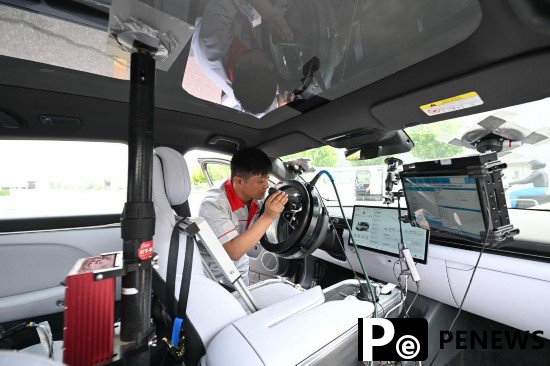
A technician installs a steering robot for an upcoming test of an intelligent connected vehicle in July in Tianjin. (Photo/Xinhua)
Clarity of operations
Phrases such as "smart driving" or "high-level smart driving" are more marketing language than technical terms.
Vehicle automation is divided into six levels, Level 0 to 5, based on how much control the vehicle takes versus the human driver, according to the Society of Automotive Engineers.
Functions now available in passenger vehicles in China are Level 2, which means the car can control both steering and speed simultaneously under certain conditions, but the driver must stay alert and keep their hands on the wheel.
Many carmakers, however, refer to such functions, which are nothing but driving-assist ones, as "high-level smart driving" in their marketing campaigns, which makes a vehicle sound more advanced than it is.
Another common marketing ploy is to say the vehicle's functions are Level 2.9 or 2.999, a meaningless number used to convey the idea a particular car is better than its rivals, and close to achieving Level 3.
According to the Society of Automotive Engineers, a Level 3 vehicle can drive itself in specific scenarios, such as a traffic jam, and the driver can take their hands off the wheel and eyes off the road — but must be ready to take over when requested.
No Chinese carmaker has commercially launched a Level 3 vehicle, although some claim that they will soon.
A large number of car buyers are attracted by the hype of smart driving, believing that their vehicles are capable of autonomous driving, which is classified as Level 4 or 5.
"This is how internet companies-turned carmakers promote things. That's incredibly irresponsible," Lu said. "Just because someone is loud doesn't mean they're right."
Overstating features is one of the strategies frequently used by NEV startups to impress potential buyers.
In February, Wei Jianjun, chairman of China's largest SUV maker, Great Wall Motors, warned that "smart driving is not a show".
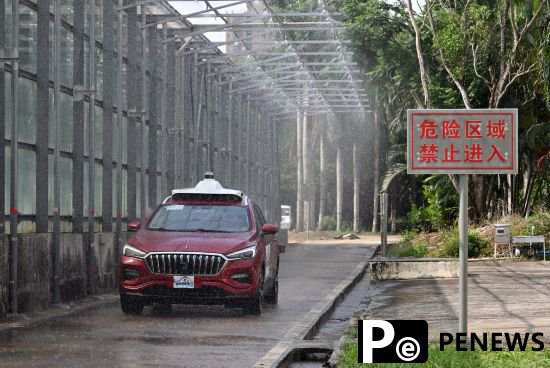
A car undergoes an automated driving test in simulated rainy conditions in Haikou, Hainan province, on May 8. (Photo/Xinhua)
Toning down claims
In a move that appeared an attempt to tone down the hype, the Huawei alliance issued a notice on April 15 calling for the use of smart driving in a "standardized way".
Nevertheless, the alliance claimed that its system had helped 700,000 vehicles prevent 1.7 million possible accidents.
"Safety is the best luxury," said Yu, head of Huawei's smart car solutions, when he unveiled the alliance's new models in Shanghai the day after the notice was issued.
On April 18, Horizon Robotics, a Chinese smart driving solution provider, also unveiled its latest products in Shanghai.
However, it abandoned descriptions such as "smart driving" and "high-level smarting", and said simply the vehicle had "Level 2 driving-assist solutions".

